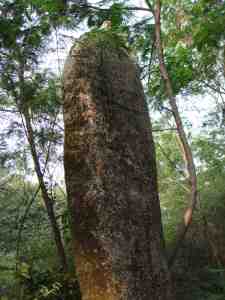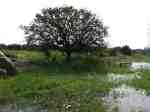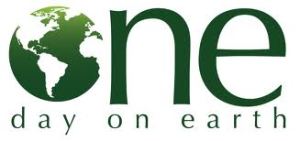 The practice of demarcating portions of forests as “off limits” for all human intervention has a long history in our country, and indeed across the world. This traditional form of conservation, of declaring some space as “sacred” has been increasingly recognized as a very effective means of preserving biodiversity, particularly as the pressure on land use increases and urbanization spreads.
The practice of demarcating portions of forests as “off limits” for all human intervention has a long history in our country, and indeed across the world. This traditional form of conservation, of declaring some space as “sacred” has been increasingly recognized as a very effective means of preserving biodiversity, particularly as the pressure on land use increases and urbanization spreads.
Sources list about 750 known sacred groves in Andhra Pradesh, and this has been extensively documented by the World Wide Fund and the AP state office of Sacred and Protected Groves. Each of the 23 districts have some, ranging from 2 in Adilabad to 133 in Chittoor. Hyderabad had 10 of which essentially nothing remains, and this includes the “protection to vegetation given by temples, mosques and idgahs, [as well as] churches in these districts. About 134 species of medicinal rare and endemic plants are reported from these sacred sites“.

Sanctuaries and such sacred groves are really the last refuge of wildlife as well. Coexistence is difficult: we humans tend to view any interference by other animals as a threat, unless of course we see them as food instead. And we really don’t think that other animals have rights, at least not in the way we think of “Human Rights”. Anyhow, whether animals have rights or not, a very tricky question that generations of philosophers and lawyers (among others) have grappled with, one way in which we can at least try to see that our campus retains some of the biodiversity that it is famed for is that we set out to protect it using some ancient techniques in addition to the modern.

Some of you were at the meeting we held in DST the other day, on the campus master plan, and saw first hand what the pressures on the land were, and what little usable land is really all that is left. We have to ensure that the land that is there is for generations to come, to be able to accommodate the numbers of students we plan to have at the University in the future, and to keep the biodiversity there is now without letting it dwindle…
The three lakes on campus and the land surrounding them are prime candidates for our own modern day sacred areas. Given the importance of water and the role it is going to play in the coming times, there is no doubt we should conserve and preserve this very vital resource. And the sheet rock. There are large tracts of the campus that are covered with wonderful rock formations, many of which we need to keep in their pristine form, both for their sheer physical beauty as well as the biodiversity they sustain.
Our sacred groves, our पवित्र वन.



